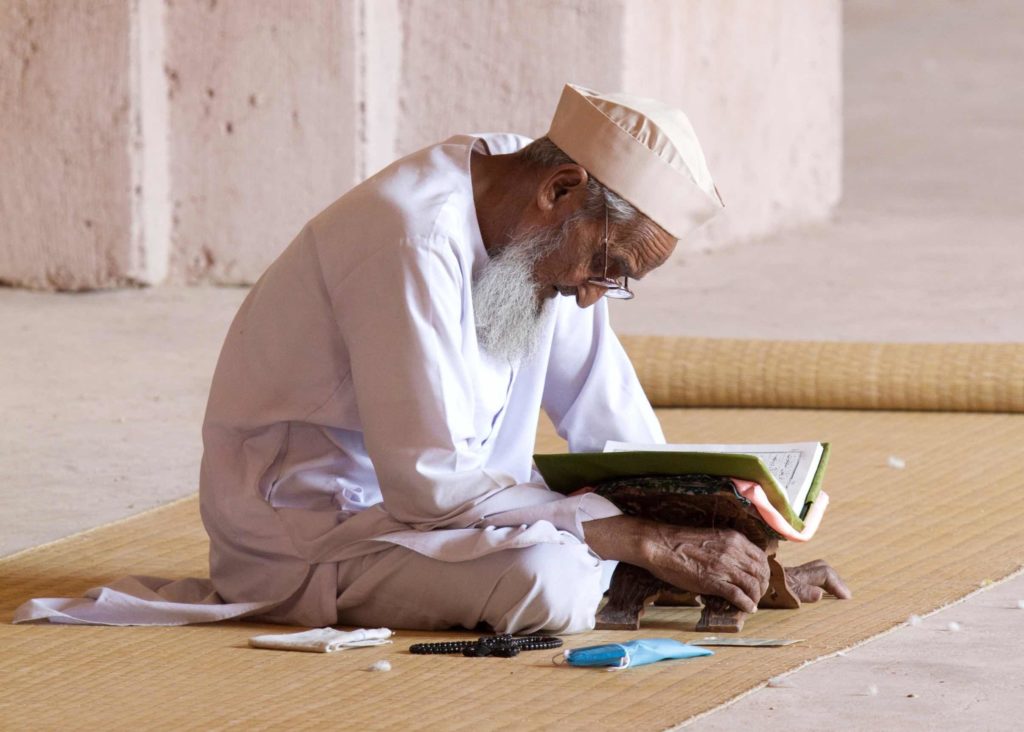
If Islam is a set of spiritual and moral values that call for justice, equality, peace, righteousness, charity, mercy, compassion and symbiosis, something which we have known since we first become conscious, we have been confronted with an ‘Islam’ of another kind, one that has followed an ideological, political and at times an authoritarian or anti-authoritarian character.
HOW IS POPULAR ISLAM different from ideological Islam? If the former was a historical development, the latter takes its origin from secret movements, most notably the Muslim Brotherhood movement in Egypt in 1928, the Islamic Da‘wā Party in Iraq, the Tunisian Ennahda Party, the Algerian Islamic Salvation Front, the Turkish Justice and Development Party, the Iranian Vilayet al-Faqih (the ‘Guardianship of the Islamic Jurist’) and other Islamic currents that prioritised political and utilitarian interest over the essence of religion with their exegesis, interpretations and readings of Islamic texts, without forgetting the Islamist premises of ISIS and, before them, the theories propounded by Al-Qaeda and other Islamist groups that spread in an unprecedented way, exploiting security gaps and the fragility and failures of certain states.
Ideological religiosity employs religion within a frame of reference created by itself for its own purposes, sometimes in the name of nostalgia for the caliphate, at other times in the name of the Vilayet al-Faqih and other times in the name of eliminating the Crusader infidel camp and establishing an Islamic state. Religiosity of this kind tends to create an organizational framework based on obedience, strict centralization, and disciplinary directives that resemble communist organizations and their nationalist and Baathist editions of them, all of which took their points of reference from Lenin’s 1903 work What to Do?
The difference between popular religion and ideological religion is patent, for when close to power the latter turns into an official religion, sometimes in the name of a sect. Indeed, the difference between authority and religion is vast, the former being based on a set of laws and regulations issued by a superior authority that arrogates to itself the right to resort to violence to impose upon people and force them to comply, from a top-down position, while religion engages with people from the position of moral values and human dimensions. Religion at times is made to identify itself with the authorities via the religious establishment, cooperating with it and submitting to its orientations. In this way the expounding and interpretation of the religion and its texts are adapted to the regime’s advantage.
As a result of political Islamist currents a severe disconnect has opened up between popular religiosity and ideological religiosity
While the term ‘cleric’ does not exist in Islam, there are nevertheless scholars of religion, albeit limited in number, and there are researchers, scholars and students of religious sciences. The authorities work to co-opt them and grant them privileges in exchange for their overt or covert collusions so that they do not overstep on each other.
I would say that religion is an individual, human affair, something lying outside the circles of politics, ideology and authority, even if religious/ideological currents themselves seek to employ it to their advantage, whether in the guise of conforming to international developments, accepting elections and the rotation of power, or returning to the past and attempting to reproduce it in conflict with the conditions and requirements of the present day and at the same time in conflict with the tolerance of Islam and its humanitarian purpose – for the past is past and cannot be returned.
The religious establishment took two paths: the first was one of conforming to the powers that be with justifications and pretexts found for that, while the second took the path of opposition. The Iranian revolution in 1979 played an important role in reviving the current of political Islam in its various schools of thought, with its aspirations for power, given that the Islamic current had played a major, positive role in the struggle against colonialism.
But religion has been shifted by some ideological religious groups – ISIS included – from a position whereby takfīr is associated with punishments deferred to the hereafter to the position of immediate and accelerated punishment – extrajudicial killing and destruction. A superficial religiosity is thus being exercised at the expense of a deeper, contemplative religiosity. This distinguishes the essence of popular religion from that of formalised religion.
As a result of the practices of political Islamist currents over the past century, a severe disconnect has opened up between popular religiosity and ideological religiosity, the former promoting latitude and tolerance, while the latter has fueled the spirit of hatred and revenge by rejecting any right to difference and not recognizing the concept of diversity and pluralism.

Suggested Reading
The revival of religious discourse – the missing human dimension
Popular faith is based on obedience to the Creator, a divine-individual faith and a faith of values, while ideologised, political religiosity, as well as formal religiosity, seek to subject man to rituals dictated by jurists of sects founded only recently. Popular religiosity focuses on satisfying human needs spiritually and psychologically, through devotional practice and a relationship of faith that lies beyond theories and ideologies, and the nonsense that has been inflicted on religion and religious feeling.
As for ideologized religiosity, this belongs to a jurisprudence penned for the most part by the Sultan’s jurists, a transition, that is, from popular religiosity to an official religiosity subject to the ruler’s ordinances, or fashioned in opposition to the ruler for political and sectarian ends. Thus the space for freedom in religion has become narrowed in favour of ideological and official religious formalism, carried out above all by expelling the mind – a divine gift –disrupting ijtihād and contenting oneself with indoctrination and the ritual recitations, memorization and repetition of Texts, that is, adhering to the outside surface at the expense of inner substance.
